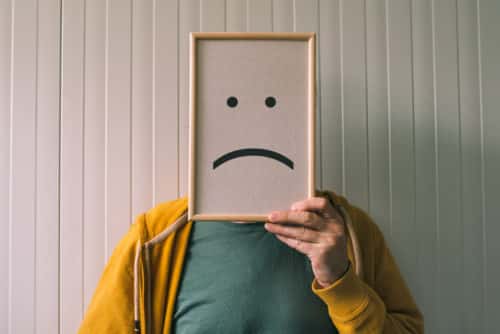 Feeling down and sad from time to time is a natural human response to life’s stressors, however, if these feelings persist sadness can become clinical depression (also known as major depressive disorder).
Feeling down and sad from time to time is a natural human response to life’s stressors, however, if these feelings persist sadness can become clinical depression (also known as major depressive disorder).
Are you depressed?
The Diagnostic and Statistical Manual of Mental Disorders (fifth edition) defines two conditions that support a diagnosis of clinical depression.
First, the depressed mood or loss of interest or pleasure has been present during a 2 week period and is a change from previous functioning.
Second, at least 5 of the following symptoms need to be present:
The symptoms of depression
- A depressed mood most of the day, nearly every day. This mood can be described as feeling sad, empty, hopeless, helpless, or numb.
- A markedly diminished interest or pleasure in all, or almost all, activities most of the day, nearly every day- this can also be observed as a lack of motivation to engage in activities.
- A significant weight change (when not dieting), or decrease or increase in appetite nearly every day.
- Difficulty falling asleep (insomnia) or sleeping more than the recommended amount of time (hypersomnia)
- Psychomotor agitation or retardation nearly every day. This means you are keyed up or moving at a much slower pace than usual to an extent that is obvious to external observers.
- Fatigue or experiencing a loss of energy nearly every day.
- Feelings of worthlessness or excessive or inappropriate guilt nearly every day
- A diminished ability to think or concentrate, or indecisiveness, nearly every day
- Recurrent thoughts of death (not just fear of dying), recurrent suicidal thoughts (without a specific plan), formulating a specific suicide plan, or attempting suicide.
 Clinical Depression is serious
Clinical Depression is serious
So clinical depression goes way beyond just feeling blue. Its symptoms can cause clinically significant distress or impairment in social, family, personal, educational, occupational, or other areas.
Depression can present itself as a physical ailment (tension in the body, stomach pains, headaches)
Depression symptoms can vary from mild to severe. This is one of the reasons why depression can look different from person to person. Many factors can affect the severity of the disorder including genetics, seasonal changes, and life event stressors. Some people may only experience a depression episode once in their lives (a single episode depressive disorder) or multiple episodes across their lifespan (recurrent depressive disorder). But even in the most severe cases, depression is highly treatable.
If you or someone you know is going through what might be depression, please call to book your first session or start with a free 15-minute phone consultation.

